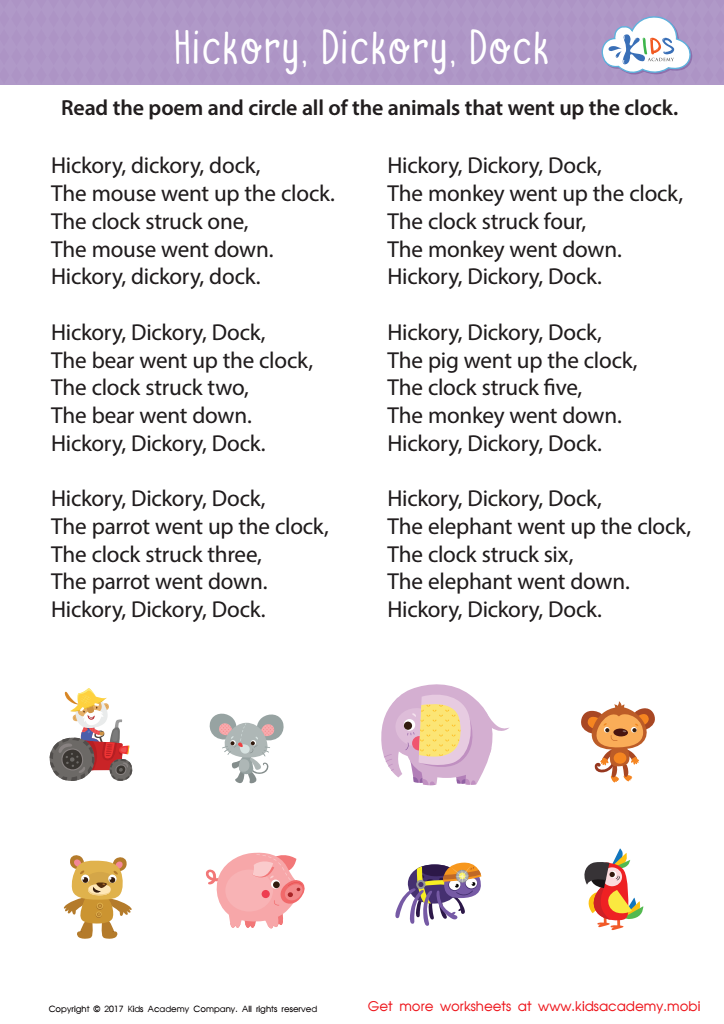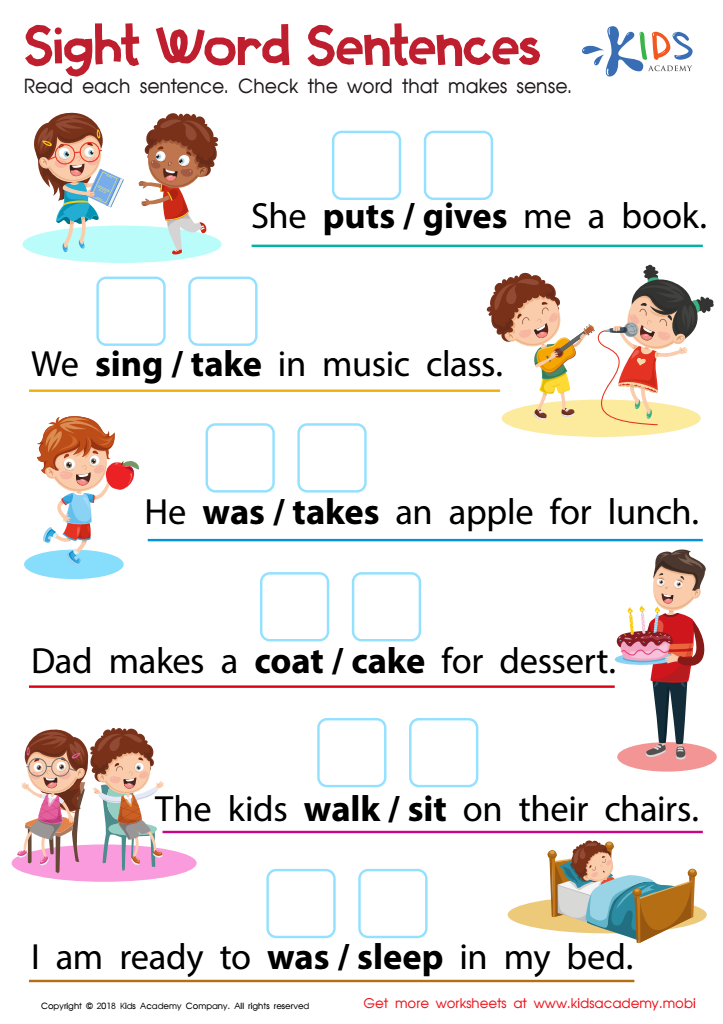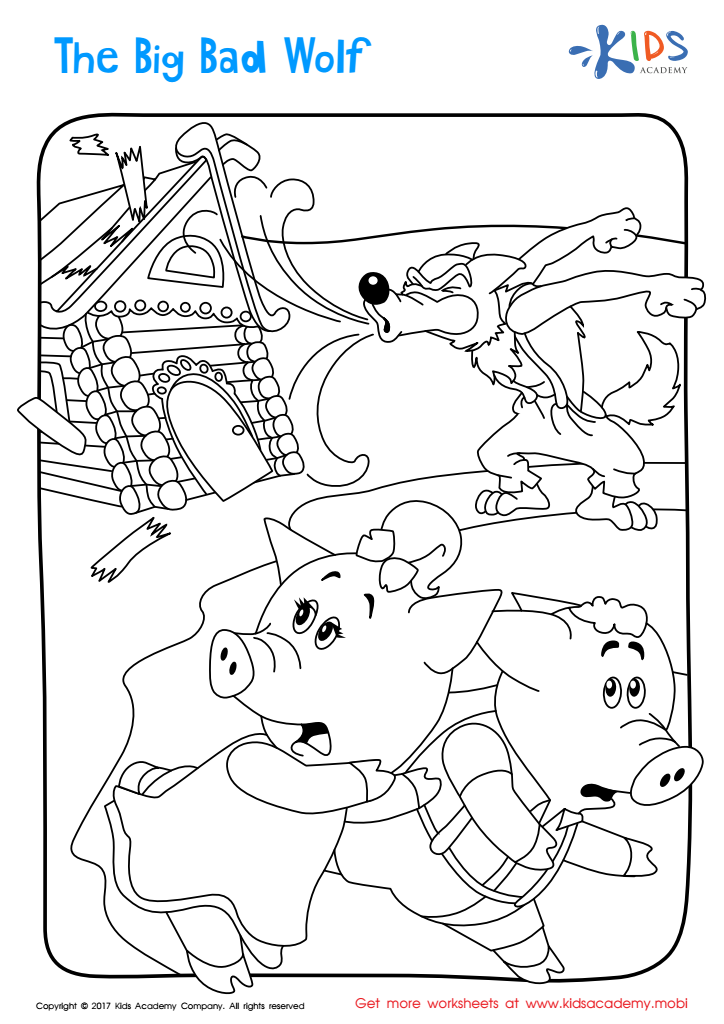Extra Challenge Reading Fiction Worksheets for Ages 7-9
4 filtered results
-
From - To
Unlock your child’s potential with our Extra Challenge Reading Fiction Worksheets for ages 7-9. Designed to enhance comprehension and critical thinking, these engaging exercises take young readers on thrilling adventures while testing their understanding and analytical skills. Each worksheet provides a mix of fun questions and exciting stories, fostering a love for reading and improving literacy. Perfect for parents and teachers, our worksheets ensure that every child can push past their reading limits and achieve new heights. Download now from Kids Academy and watch your young reader flourish with confidence and creativity!


Baa Baa Black Sheep Printable


Hickory Dickory Dock Sequencing Worksheet


Sight Words Sentences Worksheet


Big Bad Wolf Printable Coloring Page
Engaging children aged 7-9 in extra-challenging reading fiction is essential for their cognitive, emotional, and social development. At this critical stage, they're transitioning from learning to read to reading to learn. Choosing more challenging fiction helps to stretch their vocabulary, enhance comprehension, and develop critical thinking skills. Mastering complex sentence structures and diverse vocabularies not only boosts their academic performance but also cultivates confidence and a love for reading.
Emotionally, fiction fosters empathy, allowing children to explore different perspectives, emotions, and experiences safely. It equally provides a creative escape and can offer solutions to real-world problems, enabling children to handle complex situations better. A child immersed in rich, varied narratives develops not only imagination but also emotional intelligence.
Socially, children discuss their reading with peers, improving conversational skills and the ability to articulate thoughts and opinions. They bond over shared interests, creating a sense of community and understanding. Moreover, children who read higher-level fiction often model perseverance and curiosity, inspiring a reading culture among classmates.
In sum, challenging reading fiction lays a robust foundation for lifelong learning, underpinning not only academic success but also facilitating well-rounded personality development. Thus, parents and teachers should actively encourage and nurture this invaluable habit.

 Assign to My Students
Assign to My Students






.jpg)








